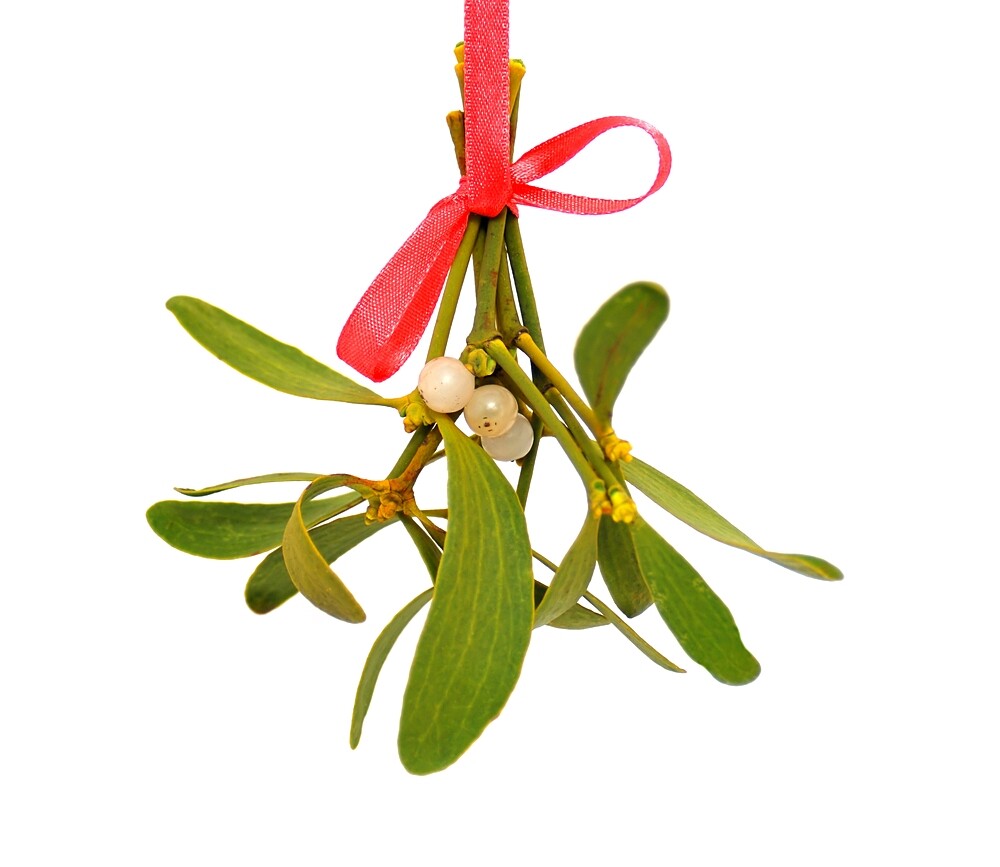Mistletoe is a well-tried remedy: Hippocrates and Hildegard von Bingen already used mistletoe as a medicine. Here you can find out how to use the tea, what effects it has and what you have to bear in mind when preparing it!
Mistletoe – Half Parasite with Healing Effect
- The mistletoe is considered a hemiparasite: The green plant with the ovoid leaves grows on or near trees, performs photosynthesis on its own, but withdraws water from the host tree. However, it is not harmful to the tree.
- The mistletoe shrub can grow up to one metre high and in late autumn forms white berries that stick together.
- Caution: Mistletoe is poisonous in its raw state. Under no circumstances should you eat the leaves or berries!
Mistletoe: Here You can Get The Healthy Herb
Mistletoe is either available at the pharmacy or you collect mistletoe yourself and dry it: The plant is not a protected species and can therefore be cut off carefully. Be careful not to damage the tree. Mistletoe should only be “harvested” on dry days (not after rain showers) and until midday with a sharp knife. Plants with berries and old branches should not be used – only the young branches are suitable instead. March and April are the best harvest time. The harvested branches are carefully wrapped in cloths and transported in this way. The branches are then tied together in bundles and hung upside down in a dry place. Ensure sufficient ventilation and gentle drying. As soon as the leaves are completely dry, the leaves and stems are cut into small pieces. The mistletoe is stored in an airtight screw-top glass in a dark place.
Mistletoe: Preparation
Attention: Mistletoe tea is not tea in the true sense of the word, but a macerate! The mistletoe must not be boiled or doused with hot water, as this would dissolve toxins. A cold water extract is made instead.
Preparation
- Add 1 to 2 teaspoons of the dried herb in a container and fill up to half a liter of cold water.
- Leave the liquid to soak overnight (eight to twelve hours).
- Strain the tea through a sieve the next day.
- If necessary, the tea can be warmed slightly before drinking – but it must not boil!
The tea should be prepared fresh every day, as it does not keep for long.
Do not use mistletoe tea if it smells musty!
Dosage: Two to three cups per day, with a break after six weeks.
Mistletoe: Effect
The health effects of mistletoe are based, among other things, on the bitter substances, flavonoids, lecitins, alkaloids and asparagine it contains. Other ingredients are histamines, viscotoxins and resin. Viscotoxins have a slightly toxic effect, which is why mistletoe must not be boiled.
Mistletoe Helps:
- High blood pressure: Mistletoe tea regulates blood pressure – whether the blood pressure is too low or too high.
- Liver detoxification: The tea detoxifies and regulates the liver.
- Arthrosis and skin diseases: Envelopes prepared with the tea can help with arthrosis or skin diseases.
- Digestive problems: Mistletoe tea has a digestive and appetite-suppressing effect, which is why it can be used to aid weight loss. The tea also helps with diarrhoea. Mistletoe also stimulates the metabolism and can even help with rheumatic complaints.
- Cardiac arrhythmia: As the cardiovascular system is strengthened by taking mistletoe tea.
- Strong menstrual bleeding: Mistletoe tea reduces blood flow during heavy menstrual periods.
- Restlessness: The tea has a calming effect and is also said to reduce ringing in the ears and can be used to treat tinnitus and migraine.
- Immunodeficiency: The body’s own defences are promoted by taking mistletoe tea.
- Menopausal complaints: Mistletoe tea promotes hormonal balance.
Mistletoe: What you have to Consider
- As already described, mistletoe must not be poured over with boiling or hot water, otherwise toxins will be dissolved.
- No side effects are to be expected. However, you should not take mistletoe during pregnancy or while breastfeeding. And if you are intolerant to histamine, allergic reactions may occur.
- It is best to consult a doctor if you are taking mistletoe for a longer period.

